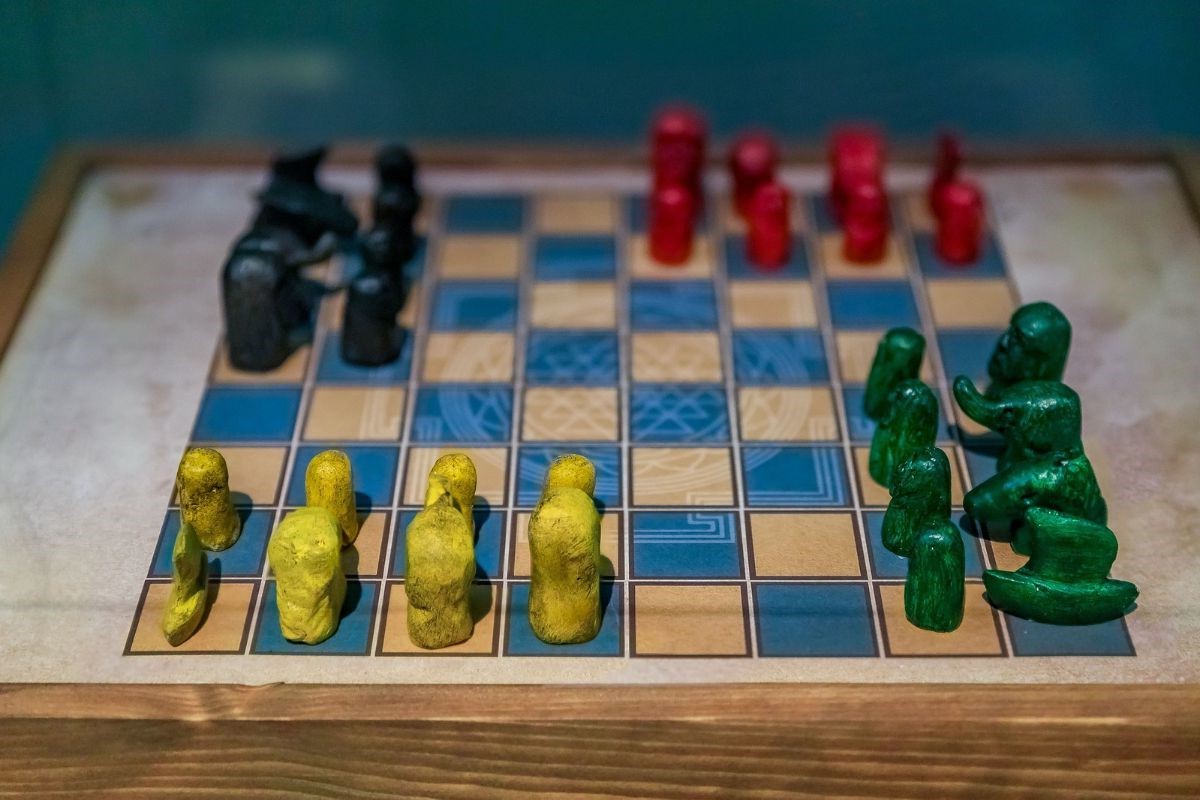Ancient Indian Games You Never Knew Existed

Have you ever wondered about the ancient Indian games that entertained people centuries ago? These games, rich in history, offer a glimpse into the past. Long before video games and smartphones, children and adults alike enjoyed games that required skill, strategy, and sometimes a bit of luck. From Pachisi, often called the royal game of India, to Kabaddi, a sport combining strength and agility, these games have stood the test of time. Some, like Gilli Danda, resemble modern sports, while others, such as Chaupar, involve intricate rules and deep strategy. Learning about these games not only entertains but also connects us to a rich cultural heritage. Ready to dive into the world of ancient Indian games?
Ancient Indian Games You Never Knew Existed
India's rich history isn't just about temples, spices, and festivals. It also includes a treasure trove of ancient games that have been played for centuries. These games not only entertained but also taught valuable life lessons. Let's dive into some of these fascinating pastimes.
Pachisi
Pachisi, often referred to as the national game of India, has a history dating back to the 6th century. Played on a cross-shaped board, it involves moving pieces around the board based on dice rolls.
- Origin: Originated in ancient India, Pachisi was played by royalty.
- Gameplay: Players use cowrie shells as dice and aim to move their pieces to the center of the board.
- Legacy: Modern versions include Ludo and Parcheesi.
Moksha Patam
Moksha Patam, known today as Snakes and Ladders, was created to teach moral lessons. The game board represents a journey, with ladders symbolizing virtues and snakes representing vices.
- Origin: Developed in ancient India to impart ethical teachings.
- Gameplay: Players roll a dice to move their pieces, climbing ladders and avoiding snakes.
- Legacy: Adapted into the popular board game Snakes and Ladders.
Gilli Danda
Gilli Danda is a traditional sport similar to cricket and baseball. It involves hitting a small stick (gilli) with a larger stick (danda).
- Origin: Played in rural India for centuries.
- Gameplay: Players hit the gilli with the danda and score points based on distance.
- Legacy: Inspired games like cricket and baseball.
Kabaddi
Kabaddi is a contact sport that combines elements of wrestling and tag. Teams take turns sending a "raider" into the opponent's half to tag as many players as possible without getting caught.
- Origin: Ancient Indian sport with roots in rural communities.
- Gameplay: Teams score points by tagging opponents and returning safely.
- Legacy: Popular in South Asia, with professional leagues and international competitions.
Kho Kho
Kho Kho is a traditional Indian sport that involves chasing and tagging. Teams take turns running and sitting, with the goal of tagging all opponents.
- Origin: Ancient Indian game played in villages.
- Gameplay: Players run in a zigzag pattern to avoid being tagged.
- Legacy: Recognized as a competitive sport in India.
Chaupar
Chaupar is a board game similar to Pachisi but more complex. It involves strategy and skill, with players moving pieces based on dice rolls.
- Origin: Played by Indian royalty and nobility.
- Gameplay: Players use wooden pawns and dice to navigate the board.
- Legacy: Inspired modern board games like Ludo.
Kancha
Kancha, or marbles, is a game played with small glass balls. Players aim to hit their opponent's marbles out of a designated area.
- Origin: Popular in rural India for generations.
- Gameplay: Players flick marbles with their fingers to hit targets.
- Legacy: Still played by children in many parts of India.
Mallakhamb
Mallakhamb is a traditional Indian sport that involves performing aerial yoga and gymnastics on a pole or rope. It requires strength, flexibility, and balance.
- Origin: Practiced by wrestlers in ancient India.
- Gameplay: Athletes perform acrobatic moves on a vertical pole.
- Legacy: Recognized as a form of physical training and sport.
Atya Patya
Atya Patya is a traditional Indian game that combines elements of tag and dodgeball. Teams take turns defending and attacking, with the goal of crossing lines without being tagged.
- Origin: Played in rural India for centuries.
- Gameplay: Players run and dodge to avoid being tagged by opponents.
- Legacy: Recognized as a competitive sport in India.
Lagori
Lagori, also known as Seven Stones, is a game that involves knocking down a pile of stones with a ball and then rebuilding it while avoiding being hit by the opposing team.
- Origin: Ancient Indian game played in villages.
- Gameplay: Teams take turns knocking down and rebuilding the stone pile.
- Legacy: Still popular in rural areas and schools.
These ancient Indian games offer a glimpse into the country's rich cultural heritage. They not only provided entertainment but also taught important life skills and values.
Rediscovering Timeless Fun
Ancient Indian games offer a glimpse into the rich cultural heritage of India. Games like Pachisi, Kabaddi, and Kho-Kho have entertained generations, teaching skills like strategy, teamwork, and agility. These games aren't just pastimes; they are a way to connect with history and tradition.
Playing these games today can bring families and communities closer, offering a break from digital distractions. They remind us that fun doesn't always need screens or gadgets. Simple, engaging, and full of life lessons, these games are worth revisiting.
Next time you're looking for something new to try, consider these ancient Indian games. They might just become your new favorite way to spend time with loved ones.

